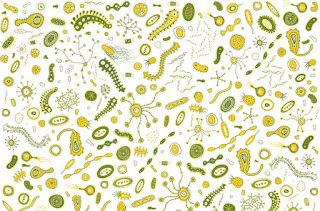Choline is a water soluble nutrient, it supports energy, brain function and keeps the metabolism active. It contributes to resources that cells used to make modifications to DNA, and with less choline the cell’s ability to modify and regulate genes can be impaired.
Tissues from the liver to the brain had altered epigenetic patterns in mice with high levels of choline-eating microbes.
Epigenetic modifications change how genes are expressed. The nutritional demand for the nutrient increases during pregnancy to support epigenetic regulation and cellular health in the developing fetus, and studies have linked choline deficiency during pregnancy in humans with altered behavior in children.
Choline is found in high amounts in soybeans, eggs, meat, fish, cauliflower, milk and other foods. To test whether microbiomes could compete with their hosts for the nutrient. Researchers used germ-free mice that were colonized with defined populations of microbes to test whether microbiomes could compete with their hosts for the nutrient.
Some mice had choline eaters; others had communities where choline consumption was disrupted by mutating a single gene. When the mice were fed with a high-fat diet, which induces a range of metabolic diseases in mice, the animals with choline-eating microbes added more abdominal fat, and had fattier livers, than their counterparts with microbes that couldn’t eat choline.
The offspring of mice with choline-eating bacteria had altered epigenetic patterns in their brains, suggesting problems with normal development. In mice that were genetically susceptible to behavioral problems, those that had choline-eating microbes showed anxious behaviors.
Epigenetic regulation explains the negative effects of choline-eating microbiomes, the byproduct of bacterial choline metabolism, known as Trimethylamine N-oxide TMAO, is also linked to negative outcomes. In another experiments, researchers observed much higher levels of TMAO in the mice that hosted choline-eating bacteria.
The toxic TMAO might work together with disrupted epigenetic patterns to create the long list of metabolic and developmental disruptions seen in these animals. The toxic effects of TMAO accumulation also complicate potential dietary remedies, more choline in the diet might lead to more TMAO rather than fixing nutritional shortages.
haleplushearty.blogspot.com


